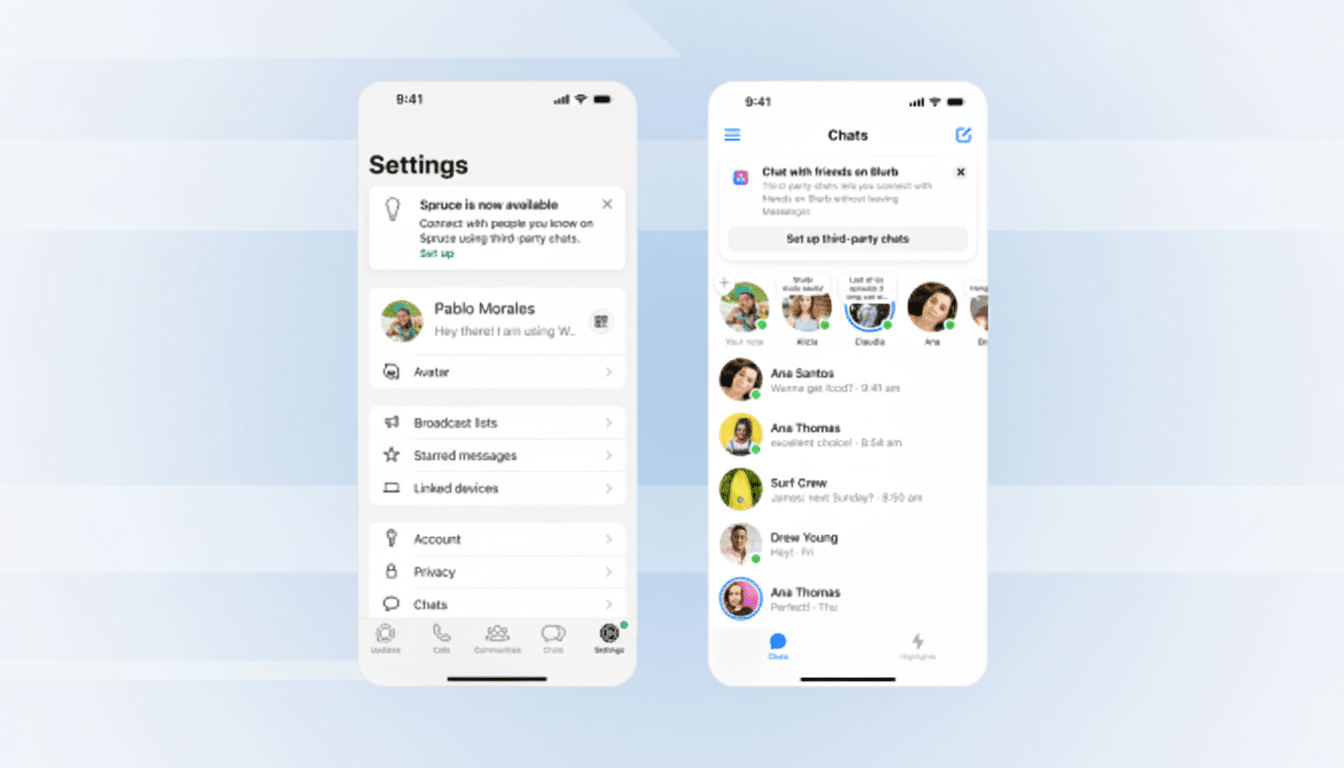WhatsApp is planning to roll out third-party chat integration across Europe, opening the doors for users to be able to message people from other apps without leaving the service. The move is to comply with interoperability mandates of the European Union’s Digital Markets Act, and it will launch with partners BirdyChat and Haiket for one-to-one conversations.
What Interoperability Would Mean for Users in Europe
Users in Europe who opt in will be able to chat with their contacts on supported third-party apps, sharing text, images, voice notes, videos, or files. Group chats with third parties are on the roadmap, and we will deliver when our partner platforms are ready.

WhatsApp’s goal is to explicitly demarcate external conversations, so people know when they are sending messages outside the host network. Users will be able to either archive the third-party chats, placing them in a separate folder, or combine them with their main inbox, and WhatsApp will label these chat threads to emphasise differences in features and protections.
It will be mobile-first, and available on Android and iOS. It won’t initially apply to desktop, web, or tablet clients — a pragmatic restriction as the company stands up the new interfaces and abuse controls at scale.
DMA Compliance and Meeting WhatsApp’s High Security Bar
The European Commission’s Digital Markets Act requires large “gatekeeper” platforms to ensure core platform services, including number-independent messaging applications, are interoperable. There are severe penalties for non-compliance, with enforcement options that include fines of up to 10% of a company’s global annual turnover and greater than that in the event of repeat offences. Injecting third-party messaging into WhatsApp fulfils them.
Security is the hinge. Meta says any participating service “would need to achieve the same level of end-to-end encryption” as WhatsApp, including the underlying Signal Protocol. That creates a high technical bar that providers have to meet — which is all about proving strong cryptography, robust identity verification, and resistance to downgrade attacks. Privacy advocates, including the Electronic Frontier Foundation, have long cautioned that badly done interoperability can degrade safety; WhatsApp’s stance on end-to-end encryption is an effort to dodge that trade-off.
How the Rollout Will Proceed Across the European Region
Screengrab of the opt-in screen in the European region where an explanation will appear under Settings on the app that describes how to connect with contacts using third-party apps. Participation is opt-in; participants can enable or disable the feature at any time. As new interoperable apps are added, WhatsApp intends to notify its users about the change and give them the opportunity to augment their compatible list if they’d like.
Meta says that its first partners, BirdyChat and Haiket, are the result of multiple years’ work with European messaging providers and regulators to come up with a workable blueprint for interop. The company has been providing technical resources to help outside developers integrate while still maintaining encryption and preventing spam and fraud.

Why It’s Important for Users and Rivals Across Europe
Interoperability chips away at the network effects that have long been a barrier locking users into today’s dominant messaging platforms. WhatsApp has over 2 billion users around the world, and in much of Europe it is the default mode for family, work, and commerce. Allowing smaller services to be connected — without forcing users to switch apps — could encourage competition on features like privacy controls, developer extensibility, and niche communities.
For newcomers, the first lifting power is reach. As long as it adheres to the encryption and compatibility standards, a niche app can retain many fans who also message people on WhatsApp. Open ecosystems like Matrix would be in the best position to gain from it, as long as they offer cryptographically sound guarantees and take it through security reviews.
Open Questions and Early Limitations of Interoperability
Not everything will have feature parity from the outset. Rich experiences such as stickers, message editing, reactions, vanishing messages, and payments may not function the same way from network to network. Some abilities will be transferred, some nerfed, and a few disabled in third-party threads until standardisation is met.
Abuse prevention is another challenge. Cross-network messaging increases the potential for spam and scams. WhatsApp says it will also introduce rate limits, surface clear provenance labels, and provide users with granular controls to prevent third-party contacts from adding them. Interop partners: If your Interop partners want to avoid being the weak link, they will need to continue with anti-abuse systems and checks on identity.
Last but not least is the issue of metadata governance. End-to-end encryption keeps message content hidden, but services still have to trade routing information and cryptographic keys. Regulators will look at how that data is minimised and whether profiling across services is architecturally prohibited.
If well done, the rollout on WhatsApp will be a seminal test of the DMA’s promise: choices for users; access for smaller rivals; and security keeping stride. The arrival of the next wave of integrations — and how soon one can introduce group chats and more robust features — will demonstrate whether that interoperability can scale without compromising trust.

